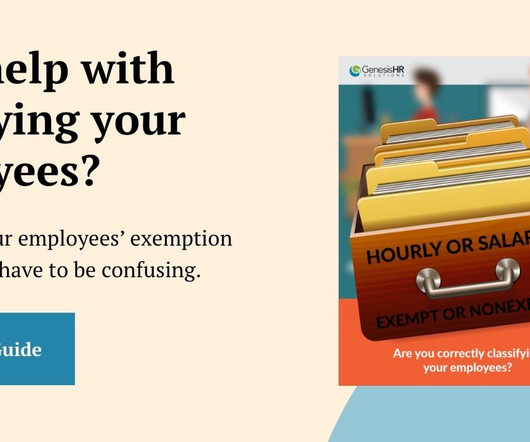4 Health Insurance Options For Small Business Owners
Genesis HR Solutions
SEPTEMBER 21, 2021
As one of the most expensive aspects of running a small business, health insurance is top of mind for many employers. What is the best way to provide insurance? Should you provide insurance at all? Why Health Insurance For Small Businesses Matters. Small Group Insurance Plans.





















Let's personalize your content